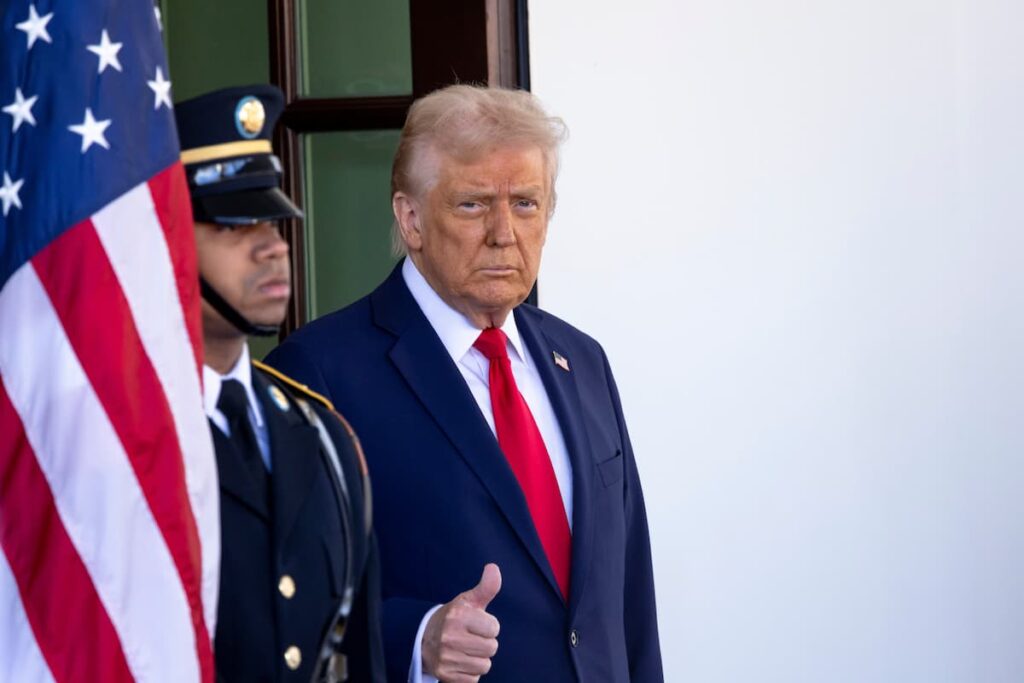Political Rhetoric Returns Amid Canadian Election Campaign
U.S. President Donald Trump has once again placed Canada in the spotlight, resurfacing his controversial suggestion that the country would function better as a U.S. state. After a brief period of silence regarding Canadian affairs, Trump’s latest remarks were made in the context of ongoing trade disputes and as the Canadian federal election intensifies.
Trump asserted that Canada relies heavily on the United States economically, pointing to high volumes of trade and falsely claiming that the U.S. subsidizes Canada by hundreds of billions of dollars annually. His renewed comments come at a time when Canadian political leaders are campaigning on their respective abilities to handle the strained bilateral relationship.
The timing of Trump’s statements has not gone unnoticed. With the Liberal Party and the Conservatives running neck-and-neck in the polls, Trump’s involvement has added fuel to an already heated election environment. Liberal leader Mark Carney has capitalized on the situation, emphasizing the need for strong leadership to push back against external economic threats.
Tariff Threats Resurface, Targeting Canada’s Key Industries
Trump also addressed the possibility of raising tariffs on Canadian goods, specifically targeting the automobile industry. He noted that existing levies on steel, aluminum, softwood lumber, and vehicle components could be increased, signaling potential trouble for Canadian exporters.
While no specific tariff hikes have been confirmed, the remarks hint at a broader strategy to pressure Canada economically. The U.S. president dismissed the need for Canadian oil, lumber, or cars, reinforcing his stance that the U.S. can remain self-sufficient without Canadian imports.
Since the onset of previous trade disputes, Canada has implemented countermeasures, including retaliatory tariffs on U.S. goods valued at around 60 billion dollars. These have targeted not only industrial imports but also components essential to the North American auto supply chain.
Canadian Leaders Respond with Caution and Criticism
Liberal leader Mark Carney, who has previously had limited direct communication with the U.S. president, reaffirmed that Canadian sovereignty was respected during their past interaction. His campaign has adopted a firm stance, calling for unity to collectively counter American pressure.
Carney’s political messaging draws a clear line between his approach and that of his Conservative rival, Pierre Poilievre. He accused Poilievre of embracing policy models similar to those seen in the United States, particularly in areas like homelessness and healthcare. The contrast in strategies has become a focal point of the election narrative, especially as voters weigh economic concerns against international relations.
New Democratic Party (NDP) leader Jagmeet Singh also voiced alarm over the potential economic fallout from Trump’s latest tariff threats. He highlighted the risk to Canadian workers and urged the federal government to enhance employment insurance protections. Singh emphasized the challenges faced by Canadians in coping with ongoing economic uncertainty.
Economic Data and False Subsidy Claims Disputed
Trump’s repeated claim that the U.S. provides Canada with massive subsidies has been widely criticized by economists and trade analysts. The figures cited—ranging from 100 billion to 250 billion dollars—have no clear basis and contradict official trade statistics.
In reality, Canada reported a trade deficit of approximately 63 billion dollars with the U.S. in the most recent year. Experts have clarified that trade deficits do not equate to subsidies, and the notion that the U.S. is financially supporting Canada is inaccurate.
Although Canadian tourism to the U.S. contributes significantly to cross-border economic activity, recent trends indicate a decline in visits. Nevertheless, this does not offset the structured economic relationship built through decades of trade agreements.
As the Canadian federal election approaches, Trump’s re-entry into political discourse north of the border has re-energized debates about sovereignty, economic independence, and international diplomacy. With key political figures leveraging these developments in their campaigns, the outcome of the election may be shaped, in part, by the unpredictable behavior of the U.S. president.


